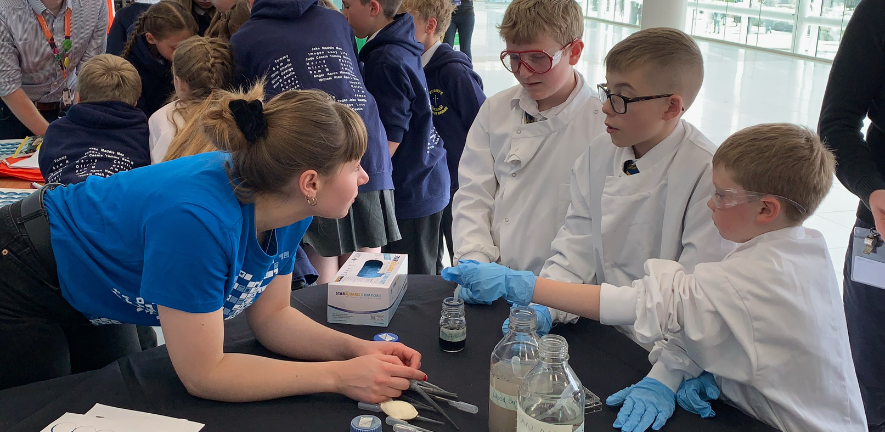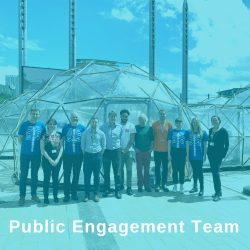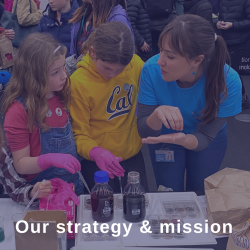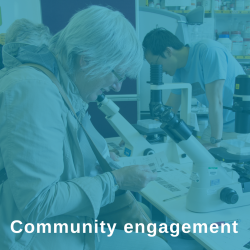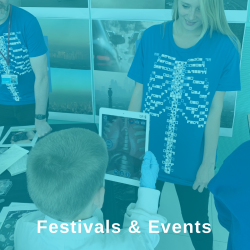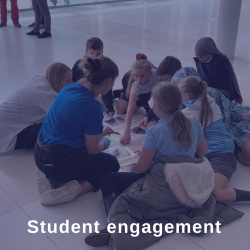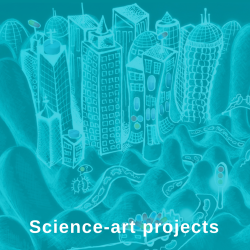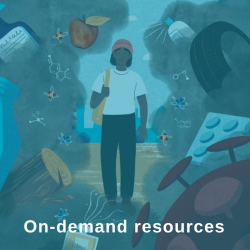The MRC Toxicology Unit has a long history of developing and delivering public engagement with science projects from school visits and science festivals, to science-art and community projects. We provide a range of engagement and science communication activities that are designed to inspire, educate and inform the public about science, specifically the work and achievements of the MRC Toxicology Unit.
Our public engagement activities aim to make our fundamental research accessible to the public for the mutual benefit of inspiration, empowerment, knowledge exchange and trust.
What is public engagement?
There are many forms of engagement and communication. At the Toxicology Unit, engagement and communication may be developed as part of a research grant, to highlight particular aspects of the research, diversity, achievement or activity of the Institute, to engage with or be informed by a specific audience or stakeholder such as sharing scientific expertise to inform policy makers. We follow the Public Engagement definition from National Coordinating Centre for Public Engagement (NCCPE) detailed below.
“Public engagement describes the myriad of ways in which the activity and benefits of higher education and research can be shared with the public. Engagement is by definition a two-way process, involving interaction and listening, with the goal of generating mutual benefit.”
Why do we engage?
Our toxicology research is destined to directly impact society. It is important that our scientists are open about the work they do, and provide opportunities for the public to question and shape our science. We believe that this enhances the quality of the questions we ask and builds trust in research.
In this section, you can browse our previous and ongoing projects and events and find out about opportunities to engage with our researchers and our research.
If you're interested in finding out how we could work together please contact:


